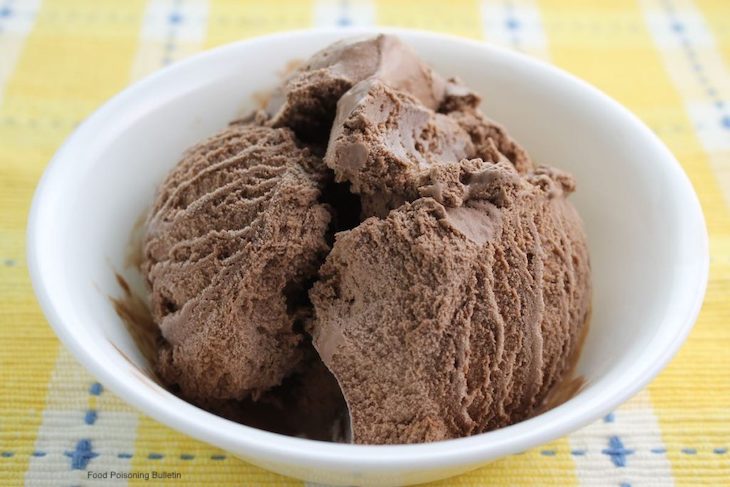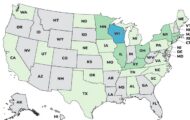The FDA announced today that they are taking steps to improve ice cream production after inspecting food facilities and collecting and testing samples from the environment where foods are produced. The notice states, “Following a string of safety issues related to a number of U.S. ice cream distributors, the FDA engaged a team to inspect and obtain environmental samples from 89 ice cream production facilities in 32 states to test for Listeria monocytogenes and Salmonella. The government found that some were in violation of the law.”

There have been two Listeria monocytogenes outbreaks linked to ice cream in the past few years. Last year, one person was sickened after eating Working Cow Homemade ice cream.
And in 2015, the CDC released information about 10 people sickened with listeriosis after eating Blue Bell Creameries ice cream. The illness onset dates in the Blue Bell outbreak went back to 2010. And since that ice cream was served to hospital patients, who are more likely to be sick or elderly, those illnesses had serious consequences.
Recalls of ice cream for possible Listeria and Salmonella contamination are common. In 2016 the FDA sent a warning letter to Jeni’s Splendid Ice Cream, stating they found Listeria monocytogenes bacteria in that facility’s processing area. Last year, Reilly Craft Creamery recalled all of its ice cream produced in the previous 7 months for possible Listeria contamination. Also last year, Fieldbrook Farms recalled ice cream bars made in 2017 for possible Listeria contamination. In 2017, La Granja recalled ice cream for possible Salmonella Enteritidis contamination.
The issue with contamination of these products is that there is no kill step after the ice cream is produced and the consumer eats it. There is zero tolerance for Listeria monocytogenes bacteria in ready-to-eat foods such as ice cream. No such standard exists for Salmonella.
One of the issues with Listeria bacteria is that it thrives in cool and moist environments. The pathogen can be hard to eradicate, since it can resist standard cleaning measures, and can hide in cracks and crevices in buildings and in machines used to make food.
The FDA’s report was conducted during 2016 and 2017. They started the project on August 1, 2016, after 16 recalls of ice cream products for pathogens in the previous three years, and the Blue Bell outbreak that involved three deaths.
FDA inspectors conducted inspections and sampling of 89 ice cream facilities in 32 states that account for about 16% of domestic ice cream production.
They found Listeria monocytogenes in 19 of the 89 establishments, and in 65 of the 5,295 subsamples. Listeria was found on food contact surfaces at one of the establishments. Salmonella was found in one of the 89 facilities, and in one of the 7,004 subsamples, but not on any food contact surfaces.
Whole genome sequencing of the Listeria monocytogenes found at that one facility was related to isolates taken from four ill persons who got sick before 2016. But officials could not determine whether any of the bacteria found in the facilities were the “likely cause” of those four illnesses.
More information came to light in 2018, linking the Working Cow Florida facility to one clinical listeriosis case. Florida health officials confirmed that the patient had eaten ice cream made at Working Cow’s facility. The FDA found insanitary conditions at that venue.
The FDA suspended Working Cow Homemade’s food facility registration in February 2019. Working Cow them shifted their business, stopped making ice cream, but instead stored and distributed product sourced from other manufacturers, so the suspension was lifted.
In response to the Official Action Indicated (OAI) contamination found at some of the ice cream facilities, the FDA held regulatory meetings and notified management at 39 facilities of the need to make corrective changes. Follow up inspections are being conducted at all the facilities that received an OAI classification.
The FDA stresses that commercial ice cream makers must control hazards in accordance with the Preventive Controls for Human Food rule that was established in 2011 by the Food Safety Modernization Act. Ice cream production safety must be a priority for these manufacturers.




